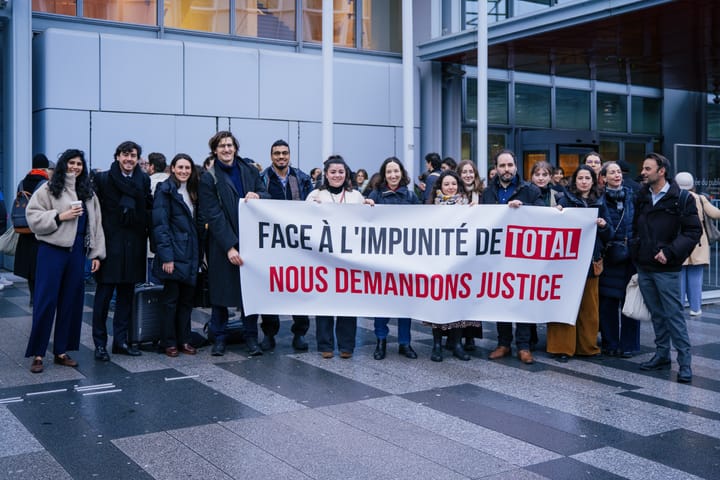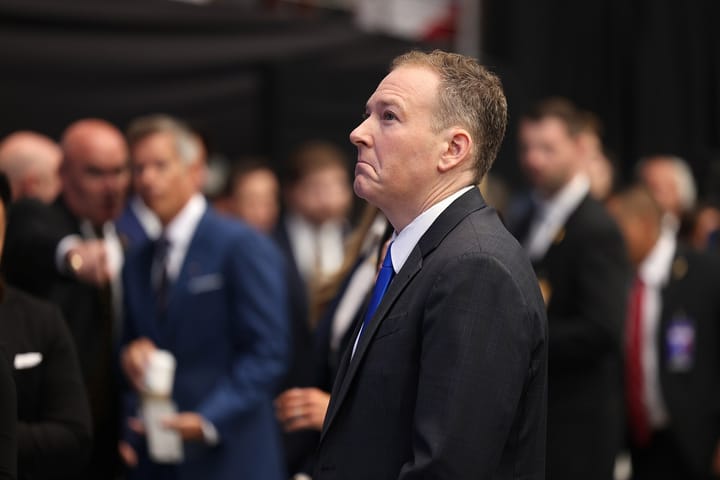Maryland Supreme Court Hears Appeal In Municipalities’ Climate Deception Cases

Lawsuits brought by Maryland municipalities against major fossil fuel companies over alleged deception and failure to warn about climate change risks came before the Maryland Supreme Court today as plaintiffs appeal lower court rulings dismissing their claims. And while plaintiffs’ counsel argued that those rulings were erroneous and based on a “rewrite” of their complaint, the justices appeared skeptical of some of the points and submissions made by this counsel.
Attorney Victor M. Sher of the firm Sher Edling, representing the municipal plaintiffs, maintained that the claims are squarely about deceptive conduct on the part of the fossil fuel defendants, not about regulating greenhouse gas emissions or otherwise controlling the production and sales of fossil fuel products. “The source of defendants’ liability,” he stated in his opening argument, “is failure to warn abetted by a sophisticated campaign of disinformation.” The justices, however, questioned his position that the cases are simply about alleged deception and that they would have no bearing on emissions or no regulatory impact.
The three cases pending before the court are Mayor & City Council of Baltimore v. B.P. P.L.C., et al.; Anne Arundel County v. B.P. P.L.C., et al.; and City of Annapolis v. B.P. P.L.C., et al. Defendants are large fossil fuel companies such as BP, Chevron, Shell, and ExxonMobil, and the legal causes of action asserted include state tort claims like nuisance, trespass, and failure to warn. The cases are part of a wave of litigation brought by US municipalities and states against the fossil fuel industry alleging that the industry lied about the climate change consequences of its products, which in turn delayed the transition to cleaner alternatives and exacerbated damaging climate impacts like coastal flooding. More than 30 of these climate liability lawsuits have been filed over the past eight years, and while several are moving closer to trial, others have run into dismissals by state trial courts. In July 2024 a Maryland circuit court granted fossil fuel defendants’ motion to dismiss Baltimore’s case, determining that federal law preempts the state law claims. Another state circuit court followed that ruling in January this year, dismissing cases brought by Annapolis and Anne Arundel County.
Plaintiffs are appealing these dismissals. Appeals have also been lodged in similar cases that have been dismissed by state courts in New Jersey, New York, Pennsylvania, and Puerto Rico. Meanwhile, every state supreme court that has reviewed climate deception claims so far has allowed them to proceed. That includes the top courts in Massachusetts, Hawaii, and Colorado.
It remains to be seen whether the top court in Maryland will follow that pattern. The Maryland supreme court justices overall seemed a bit more receptive to the assertions made by Theodore J. Boutrous, Jr, the attorney representing Chevron who argued on behalf of all fossil fuel defendants. The justices appeared to have more reservations or questions about the arguments put forward by Sher.
Justice Steven B. Gould, for example, pressed Sher on the plaintiffs’ requested remedy and allegation that defendants concealed what they knew about climate risks. “The information itself, that’s a secret?” he asked.
Sher responded that oil companies “have an obligation to give warnings commensurate with the risk,” and that none of these companies have done so. “There’s been an evolution from outright [climate] denial to what is called greenwashing,” he explained. He argued that avoiding liability is “a matter of issuing adequate warnings and ceasing the deception” and that “any impact of emissions going forward would be a result of market forces.”
“It’s not a matter of regulating emissions,” Sher asserted.
Gould continued to question Sher later on in the oral argument session, which lasted about an hour, asking Sher to walk him through what some of the deceptive statements were and how they specifically led to the climate change injuries suffered by plaintiffs. He also asked about the extent to which a change in behavior by Maryland consumers would have ameliorated the injuries. Justice Brynja M. Booth told Sher that it seems that plaintiffs’ theory of liability and their requested relief are both tied to or relate to interstate emissions. Sher responded by saying that the claims “are all tethered to the deception.” He emphasized that emissions “are the avenue of injury but not the source of liability.”
Fossil fuel defendants argue in the Maryland cases and in other climate liability suits that federal law such as the Clean Air Act preempts the state law claims. These cases, defendants say, are essentially seeking to achieve a regulatory purpose and there is no way to disentangle the allegations of deception from the occurrence of interstate greenhouse gas emissions, which fall under the purview of the US Environmental Protection Agency per the Clean Air Act. The EPA under the Trump administration, however, is now arguing that it lacks the authority to regulate GHGs under the Clean Air Act as it moves to rescind the 2009 greenhouse gas endangerment finding.
“Congress charged the EPA with this authority to regulate emissions, including greenhouse gas emissions,” Boutrous told the justices. He argued that plaintiffs’ allegations pertain to worldwide conduct that far exceeds the limits of state law. “They’re asking for a duty to the world,” Boutrous said. “It’s a breath-taking duty they want to impose.”


